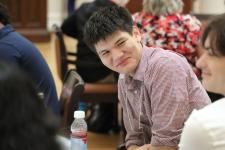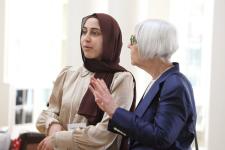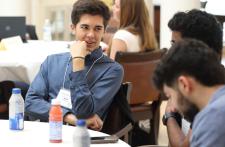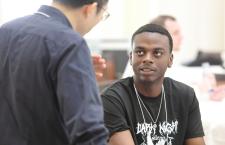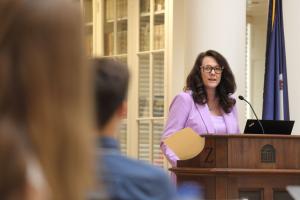
The University of Virginia hosted a cybersecurity “bootcamp” in the Rotunda last week for students helping to ensure the integrity of the state’s upcoming elections.
This year, 22 UVA School of Engineering and Applied Science students — 35 total — are serving as summer interns for the Virginia Department of Elections through the Virginia Cyber Navigator Internship Program.
Students from George Mason University, Norfolk State University, Old Dominion University, Virginia Commonwealth University and Virginia Tech are also participating.
The interns will advise localities about where they can shore up electronic defenses. The May 23 and 24 speeches and activities in the Rotunda’s Dome Room were the final element of the training, supplementing previous coursework.
“Seek to understand, then be understood,” said Susan Beals, Virginia’s elections commissioner, referring to the importance of listening to other people’s ideas and feelings before providing input.
Supporting Democracy
Beals was just one of the presenters who issued students inspiring marching orders. U.S. Sen. Mark Warner delivered video encouragement, while Engineering Dean Jennifer L. West gave opening remarks about the importance of the work.
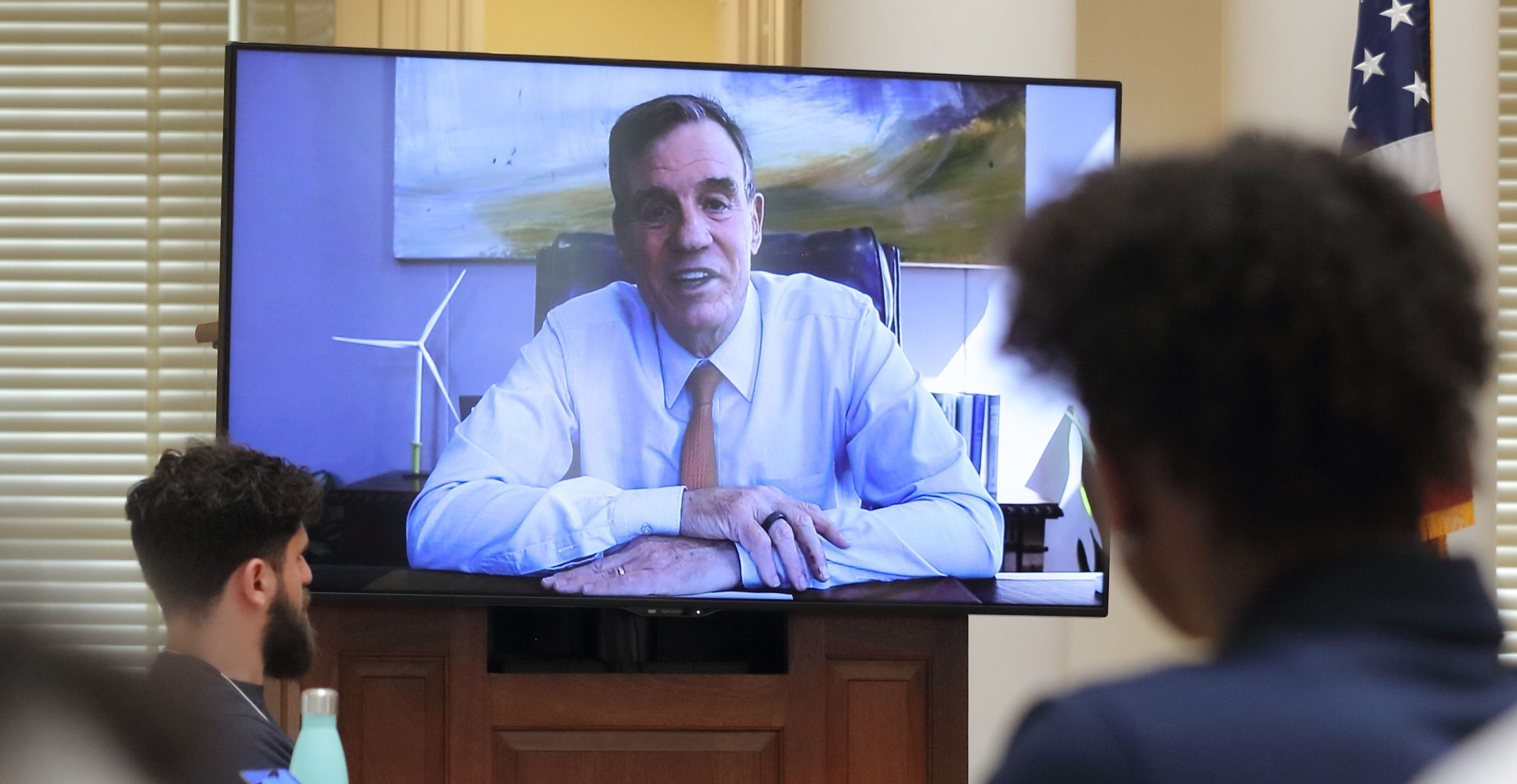
The funding for the internship program comes from the National Centers of Academic Excellence in Cybersecurity program, a National Security Agency initiative.
Potential problems with voting might come in the form of breaches of voter rolls or computerized balloting systems, or from other hacks to sensitive information.
Students, in that regard, can make a big difference, Beals said. They are not perceived as the state hovering over local efforts. The students are there to learn. In exchange, they share with the local officials what they know about the latest cybersecurity practices.
She advised students to keep their cool in what may be an intense work setting. Leave political leanings at home and remember that most problems during elections are simply human errors, she said.
She noted that she makes a point to visit local registrars’ offices before each election, but that the internship program has been a good return on investment as a supplemental effort. In all, it takes about 20,000 people to conduct an election in Virginia, she said.
Helping Students
The program also has paid off for students. For example, one of the interns who participated last year was hired full-time by the election locality where she interned.
Localities voluntarily participate, with several having returned again this year.
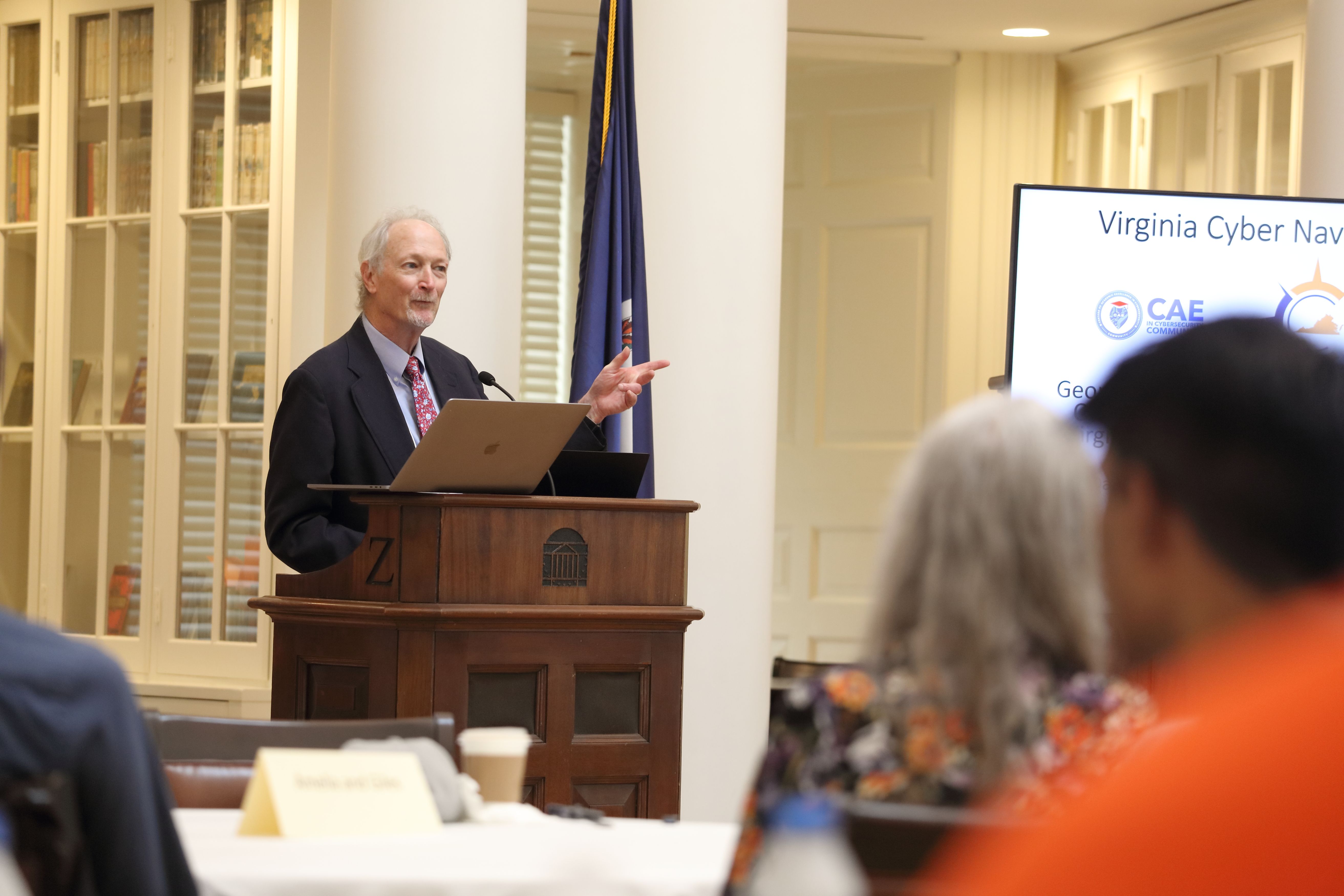
Professor Jack Davidson, director of UVA’s Cyber Defense Program of Study, has worked with faculty from across the Commonwealth to provide the Virginia Cyber Navigator program to computer science undergraduates and voting communities for all three years of the grant.
“Students will be drawing on this experience for years to come,” Davidson said.

